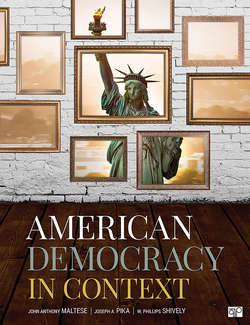Читать книгу American Democracy in Context - Joseph A. Pika - Страница 25
На сайте Литреса книга снята с продажи.
Providing Public Goods
ОглавлениеA public good may sound general but is in fact a very specific term. Public goods are more than “goods for the public”; they are, precisely, benefits that cannot possibly be given to some people while being withheld from others.9 Public goods include national defense, space exploration, basic medical research, and public health programs to control the spread of disease. It is physically impossible to prevent any member of the community from using these goods. For instance, the U.S. government cannot defend its entire country’s borders without also defending Phil Shively in Minneapolis, Minnesota.
Public goods, such as clean air and water, benefit everyone, not only the specific people who paid for them.
DEA / ALBERT CEOLAN / De Agostini / Getty Images
Most importantly, the use of public goods cannot be restricted to only those who have helped to pay for them. Thus, public goods are dogged by the problem of free riders, who reason that since they will obtain the good in any case, they can get away without paying for its cost: “If I don’t pay my share, the army will still be there, and I’ll get all the benefits of it. Why should I pay?” Everyone could reason like this, so if a public good such as defense were left to private corporations or to organizations accepting voluntary donations, it would end up inadequately financed and everyone would lose out.10 That is where government comes in. Since a government has the right to use force to implement its choices, it can require people to pay taxes and then use that tax money to pay for the public good. Mandating shared payment of a public good eliminates free riders.
public good Something that benefits all members of the community and that no one can possibly be prevented from using.
free riders Those people who take advantage of the fact that a public good cannot possibly be denied to anyone by refusing to pay their share of the cost of providing the public good.
Let’s consider the case of public television, a public good that is largely funded by donations from viewers, not provided by the government in the United States and therefore suffers a serious free rider problem. Television signals that are broadcast on the air waves are a public good because no one in the community can physically be prevented from picking them up with a receiver, whether or not they have paid, so public television stations are faced with the problem of free riders. For this reason, every few months, the station’s staff finds itself forced to interrupt their programming in the hopes of encouraging viewers to help defray the costs of running the station. They appeal to guilt: “Only one in ten of you who watch this station is a member; the rest of you are free riders.” They appeal to acquisitiveness: “For the basic $35 membership, we offer this lovely ceramic mug, embossed with the station’s logo.” Perhaps the most effective pitch occurred a few years ago in Minneapolis, Minnesota, when the station staff promised that if they reached their goal early, they would cut off the fund drive at that point and return to regular programming. Contributions flooded in!11
In short, through such actions as providing for the defense of the country, exploring space, protecting the environment, and developing public health programs such as immunization, the government is fulfilling its function of providing public goods. If the air quality is preserved, it is preserved for all of us. And so, preserving the air quality (a public good) raises the problem of free riders and is thus undertaken by government.
